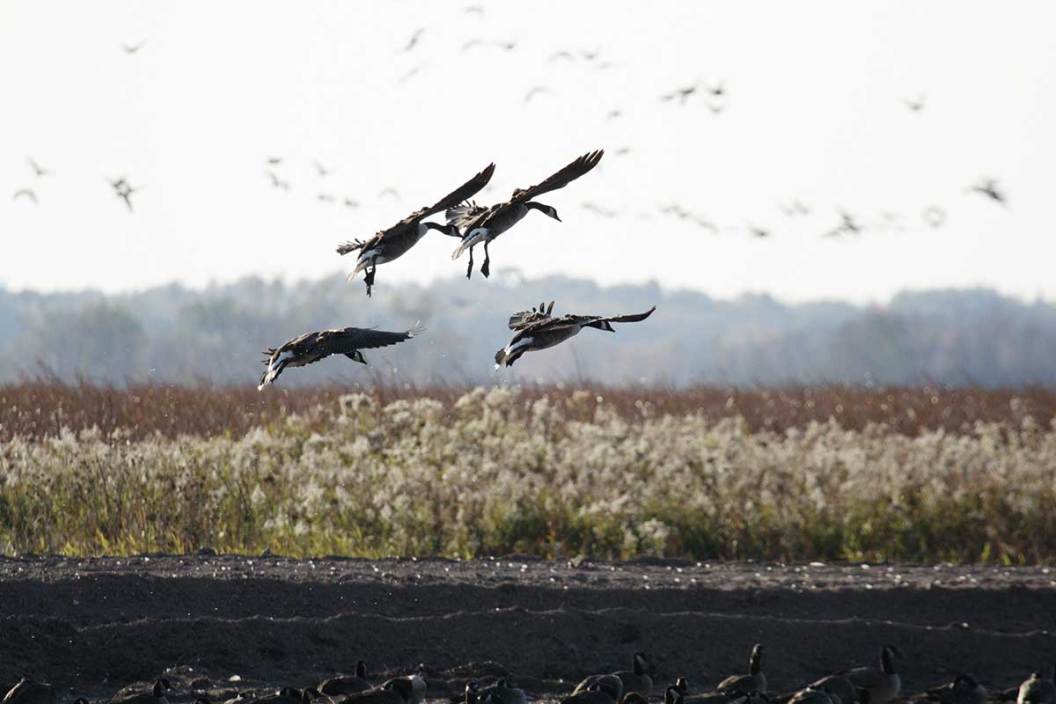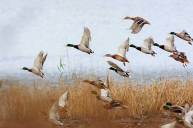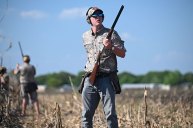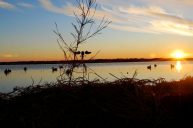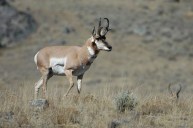Montezuma National Wildlife Refuge offers some of the nation's best wildlife viewing and hunting opportunities.
Montezuma National Wildlife Refuge in Central New York is one of those areas where conservationists and hunters can have the opportunity to see some of North America's most sought after animals. At times, this refuge can be a home to holdover bald eagles (including six active bald eagle nests), sandhill cranes, tundra swans, snow geese, and hundreds of thousands of waterfowl.
This Atlantic Flyway stopover for spring and fall migrations can boast over 75,000 Canada geese, over 15,000 snow geese, and over 100,000 mallard sightings in the refuge in a single year.
Birdwatchers come from near and far to observe the pristine wildlife, but the hunting community can take advantage of the incredible number of waterfowl that linger here each fall.
Details of the Montezuma National Wildlife Refuge
The U.S. Fish and Wildlife Service provides plenty of background on the Montezuma National Wildlife Refuge. The area was once known as the Montezuma Marshes. It was officially established on September 12, 1938 and intended to be a "refuge and breeding ground for migratory birds and other wildlife."
This New York refuge is situated at the north end of Cayuga Lake in the Finger Lakes region of New York State. Montezuma holds nearly 10,000 acres in parts of Seneca, Wayne, and Cayuga Counties. As mentioned, it is located right in the middle of one of the most active migratory bird flight lanes in the Atlantic Flyway.
A good amount of mammals, reptiles, and amphibians call the Montezuma National Wildlife Refuge home, but it's the birds that attract most of the attention. Common species inside of Montezuma's borders include bird watching favorites like great blue herons, green-backed herons, great egrets, black-crowned night-herons, Virginia rails, American and least bitterns, common moorhens, and pied-billed grebes.
Red-tailed hawks, American kestrels, northern harriers, eastern screech owls, great-horned owls, and birds of prey like ospreys and bald eagles all have common breeding pairs in the Montezuma National Wildlife Refuge. Overall, this is an extremely important bird area.
These pristine wetlands include many muskrats and beavers that thrive in the marshy habitat. Raccoons and opossums are common along with sightings of red and gray foxes and coyotes.
Montezuma's Visitor Center, the entrance to the popular Wildlife Drive and Seneca Trail, and the refuge's headquarters office are located at 3395 U.S. Route 20 East, Seneca Falls, NY, (13148) between Auburn and Seneca Falls, New York.
Hunting in Montezuma National Wildlife Refuge
These are the species listed by USFWS as huntable in the refuge:
- Canada Goose
- Snow Goose
- Whitetail Deer
- Rabbit
- Squirrel
- Woodcock
- Duck
As a waterfowl hunting destination, it's little wonder why Montezuma is top-notch. Common listed species are mallard, black duck, wood duck, gadwall, green-winged teal, American wigeon, northern pintail, northern shoveler, and blue-winged teal. Diving duck species also use Montezuma during their fall migration including canvasback, redhead, ring-necked duck, and lesser scaup.
Smaller numbers of bufflehead, ruddy duck, and common and hooded mergansers also use the abundant wetland habitats at the refuge during their fall migration.
Both bowhunting and firearm hunting for whitetail deer is open to the general public at the refuge. All New York firearms season dates and regulations should be observed at all times.
Both spring and fall turkey hunting are allowed in Montezuma, but in different areas of the refuge at those times. You can see the Montezuma wild turkey hunting map here, as well as other helpful maps and more info.
The rules governing hunting for cottontail rabbit and squirrels are based on the New York state hunting regulations for small game with one important proviso: Hunters may use only approved non-toxic shot for hunting of all small game species inside of Montezuma National Wildlife Refuge.
Be sure to check in on the latest info regarding hunting regulations inside Montezuma.
The Montezuma Experience
As hunters, we are always looking for the next great spot (or any spot) to hunt. We are aware of our responsibility to the wildlife we hunt, and hunting in a national wildlife refuge makes it even more important.
These shared lands mean that both hunters and non-hunters can rub elbows in the refuge, and that can be a good thing. Showing our fellow Americans how responsibly we use these wild lands, leaving nothing behind but footprints, goes a long ways towards creating an experience that everyone can enjoy.
Please check out my book "The Hunter's Way" from HarperCollins. Be sure to follow my webpage, or on Facebook and YouTube. Go to Rack Hub and use the coupon code Craiger for a new way to display those antler sheds!
